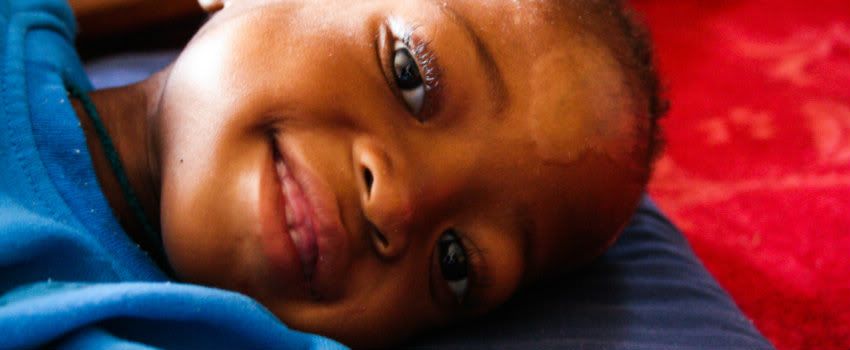Today is New Year's Eve, and so my time in Mokhotlong is winding down. I return home in just a month and a half -- a place that still seems distant, but a place I thought of today in terms of my future and my "resolution" for 2011.
This year has been so transformative for me, I at first questioned whether I could think of a resolution befitting that transformation, befitting how I want that transformation to affect my life moving forward.
For me, New Year's Eve always brings to mind fond memories of my maternal grandfather, who my siblings, cousins and I all called "Captain Joe."
He was an amazing man: a former captain of a nuclear submarine in the U.S. Navy who was raised by Irish immigrant parents and who raised nine kids of his own with my grandmother. All his Irish character made him the grandfather I remember -- forthright and proud and wonderfully communicative with his young, admiring grandchildren.
Each New Year's Eve, my siblings and I stayed with him and my grandmother. We picked a movie -- usually a grandiose film influenced by his suggestions, like King Kong -- and we each got to select a box of candy to celebrate with. We'd inevitably fall asleep before midnight, but come midnight, or just before, he would wake all of us up to go out into the front yard and bang on pots and pans -- neighbors be damned.
In years to come, New Year's Eve became something else -- a time when wild ideas about what the future would hold filled my imagination. I remember thinking about flying cars and transportation devices, often with the impression that such fantastic inventions had a real chance of being around, come some futuristic sounding year, like, say, 2011.
It's strange now to be with those memories here, where for many people, cars in general aren't even a reality they have access to, much less flying cars.
Back when I was a kid in the late 1980s and early 1990s, imagining fantastic things, what were young rural Basotho imagining? I wonder.
This year, in many ways, my thoughts of the future are less about what my own life will hold than about what Mokhotlong will be like then. Will things have drastically changed? What will TTL be like? Will our network of supporters still be strong?
Will there be a cure for HIV? And like cars today, if there is a cure, will the poorest of the poor have access to it?
I've decided that my New Year's resolution this year is to keep asking questions like that, to keep wondering what the future will hold, not just for myself, but for others -- and whether I can affect that future in a positive way.
Will I be able to improve my life this year? Well, it's already pretty good.
More important: Will I be able to improve someone else's life this year? And if so, how?
To that, another amazing man and my paternal grandfather, who I called Poppy, comes to mind. He used to say that a key strength in a person was the ability to be "unobtrusively aggressive," and I think that's just right.
Sometimes, banging on pots and pans is just the thing to do.



